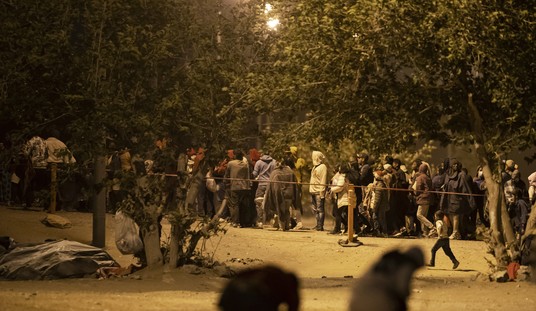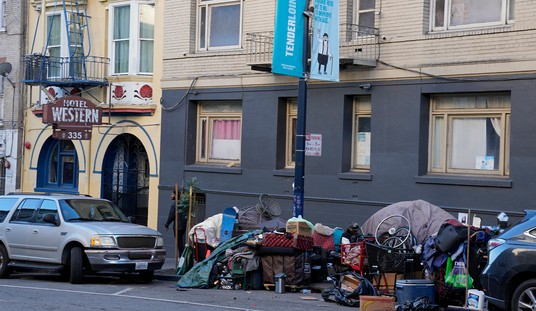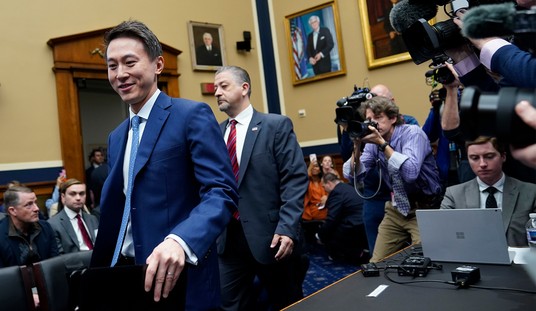In case you missed it over the weekend, we already discussed the global summit in Davos, Switzerland and the sense of panic setting in among European Union (EU) leaders regarding the Syrian refugee crisis. Not everyone was just complaining and wringing their hands, though. Foreign policy wonk and founder of Eurasia Group, Ian Bremmer, was ready to put forward some solutions. Before tossing them out with the bathwater entirely, I will give credit to Bremmer for at least attempting to identify the root of the problem. Rather than trying to figure out what to do with millions of out of control immigrants flooding countries around the world, perhaps you should see if there’s a way to stop them from leaving home in the first place. (Yahoo News)
“In America, we had a war on drugs that did not accomplish a lot, because Americans were dealing with everything but the actual problem,” Bremmer told Mic. “Similarly, right now, you have across the Middle East tens of millions of young, disenfranchised Islamic men who have a demand for a sense of mission. There aren’t a lot of options for them. Al-Qaida, ISIS and Boko Haram have proved to be by far the most compelling. Unless that is changed, you cannot resolve the refugee problem.”
For this reason, Bremmer says there’s one key to permanently solving the refugee crisis, and it rests with Arab governments.
“The regimes they are living in are unsustainable, and they must reform to provide these young men and women with careers and livelihood,” Bremmer told Mic.
In the most general sense, Bremmer is obviously correct. If you’ve got a population that’s suffering from skyrocketing cases of lead poisoning, rather than only treating the people with the disease, you might want to figure out where the lead is coming from and shut it down. But in the case of that part of the world his solution is woefully short on specifics. What sort of “pressure” can the rest of the world apply on Arab governments to change the situation? Telling Islamic governments that they need to curb the appeal of the call to Jihad sounds rather unlikely to say the least. The other aspect of the question is what to do about nations which are collapsing into failed, terrorist states.
On that second score, Bremmer criticizes those who pine for the days when “brutal dictators like Saddam Hussein and Moammar Gadhafi were still in power.” In a perfect world, having some sort of despotic strongman oppressing his own people is hardly an ideal solution, but for some of the smaller, volatile nations in less developed regions of the world, it’s hard to argue that allowing them to melt down the way Syria has is preferable to a dictator.
So what’s the role of the United States in this? Bremmer goes a bit off the beam here and he’s joined by David Miliband, president and CEO of the International Rescue Committee.
Miliband and Bremmer also both pressed America to do more to resolve the problem.
“The political climate [around refugees in the United States] is noxious,” Miliband told Mic. “[But the existing system of] biometric testing of refugees means you cannot become a refugee resettled into the U.S. unless you can prove you are who you say you are.”
Bremmer had a similar message. “The Americans have been most effective at not making this our problem, and you’re going to see more of that going forward from European governments,” Bremmer told Mic.
“We need to make it our problem.”
With all due respect to Messrs. Miliband and Bremmer, I think you could find a number of people hanging around in San Bernardino or Philadelphia who think that it’s already our problem in a very big way. When you begin by arguing against things like biometric testing of “refugees” you are working from an assumption that you’re dealing with people yearning to be free who want to immerse themselves in the great melting pot. The situations that the EU nations are dealing with today would seem to argue against that premise. There’s a vast difference between bringing in new citizens who want to integrate into your culture and importing hordes of people who want to bring their culture with them.
Germany, for example, is wrestling with just that question today. In an excellent piece for Yahoo, Mathilde Richter studies the question of trying to integrate the Syrian arrivals into rural, farming communities rather than the big cities. Some German leaders seem to see this as a more promising path, but they’ve run into trouble there as well.
“The rural regions are a laboratory of integration,” said Karl-Friedrich Thoene from the infrastructure and agriculture ministry of the eastern state of Thuringia.
Unlike in densely populated big cities, “there can be no parallel societies in rural areas,” he said. “The village community is the ideal chance for integration.”
The lower cost of living, cheaper rents and tight-knit communities in the countryside are main “factors of success” for integrating the newcomers, said Gudrun Kirchhoff, an expert on refugee issues at the German Institute of Urban Affairs.
That all sounds great in theory, as I said above, but it relies entirely on the immigrants actually being interested in taking on the culture of their new homes. As the article goes on to point out, that’s frequently not the case, leading to all manner of friction. And I would argue that the potential negative impact of a swarm of squatters from a foreign culture is actually greater in a remote village of only four or five thousand people. At least in the major cities you have a more significant military and law enforcement presence on call when trouble erupts. Not so in a farm town where a few local constables on foot patrol may be the only available help for fifty miles or more.
The challenges presented by the flood of immigrants from these war torn regions do cry out for solutions. But while I credit Bremmer and others for at least talking about the problem, their fingers seem to be pointing in the wrong directions. The only way to shut down this flood is to cut it off at the source and that will require ending the wars taking place in their homeland and imposing some sense of order, by force if necessary.









Join the conversation as a VIP Member